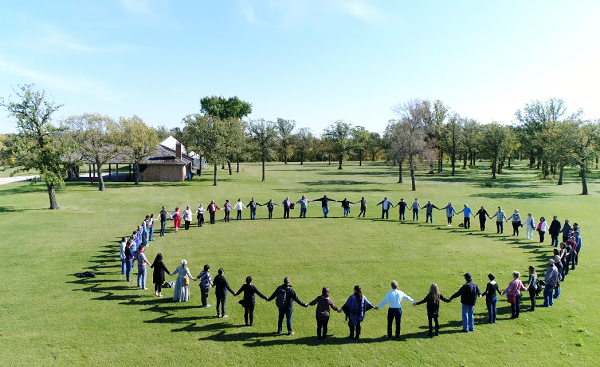First published on 04/10/2020, and last updated on 05/04/2020
By Allison Bishop,Conservation through Reconciliation Partnership.
Directly extracted from this blogpost on Conservation through Reconciliation Partnership’s website.
On April 3rd, 2020, the Conservation through Reconciliation Partnership (CRP) in Canada held a virtual dialogue on the importance of Indigenous Protected and Conserved Areas (IPCAs) in the time of the COVID-19 pandemic. Hosted by members of the CRP Leadership Circle and Elders Lodge, the purpose of the dialogue was to create a space to reflect on the renewed urgency of Indigenous-led conservation during these challenging and uncertain times.
CRP Leadership Circle member, Lisa Young, explained that the Mi’kmaw People have the word Msit no’kmaq, meaning ‘all my relations’. Msit no’kmaq is used to describe everything in the natural world “from the smallest insect, to the trees, to the water”. The concept conveys the interconnection and relationship between humans and the land; in order to have balance with the natural world there must be the mutual respect and reciprocity typically found in healthy relationships.
When humans forget to uphold their responsibilities to the natural world it creates an imbalance which is often corrected through fires, floods, storms, and disease. CRP Leadership Circle member, Eli Enns, shared a story of a hunter who was not a hunter, but rather a man who failed to respect the life of deer people by entrapping an entire herd for his families use. In response, the spirit world infected a deer child in the entrapped herd with disease which made his family gravely ill, many of them left dead. The story serves as a reminder to respect the liberty of all things in creation.

© River Voices Productions.
Indigenous-led conservation provides another path forward; a path that centers mutual respect, reciprocity, and responsibility towards all of creation. IPCAs are a model for community resilience against climate change and biodiversity loss and are a way of re-balancing an unhealthy relationship with the land.
Indigenous-led conservation and IPCAs also represent an opportunity to innovate sociopolitical and economic structures in ways that will better align with and uphold Natural Law. As noted in We Rise Together, the report created by the Indigenous Circle of Experts, IPCAs represent the “pursuit of social and economic benefits through the conservation of ecosystems within an area, or a variety of economic arrangements that have been redesigned to restore, rather than deplete, natural and social capital, based on the premise that life comes from nature and depends on its capacity to maintain healthy ecosystems.” (Indigenous Circle of Experts, 2019, pg. 39).
While we are living in a time of great suffering, the Elders shared messages of hope. Elder Larry McDermott noted that the Earth is making corrections during a time of renewal when animals are making their nests and plants are re-emerging from the ground. Elder Marilyn Capreol shared that for Anishinaabe People this is a fasting time, and the physical distancing we are all experiencing is like a fast. This is an opportunity to detox our emotional and spiritual misunderstandings and when we reemerge from our fast, we will be “like brilliant stars”.
Thank you to the following members of the CRP Leadership Circle and Elders Lodge for generously sharing their thoughts and teachings:
- Elder Marilyn Capreol; Anishinaabe from Shawanaga First Nation
- Eli Enns; Nuu-chah-nulth from Tla-o-qui-aht First Nation
- Elder Holy Walking Woman, Paulette Fox; Natowaawawahkakii, from the Blackfoot Nation
- Elder Larry McDermott; Algonquin from Shabot Obaadjiwan First Nation
- Steven Nitah; Dene from Lutsel K’e First Nation
- Lisa Young; Mi’kmaw from Membertou First Nation
Featured image: © River Voices Productions.
